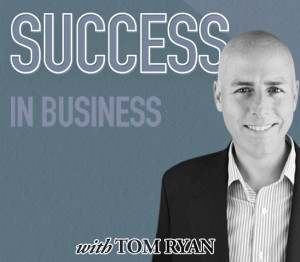 There’s a lot of wisdom that can come from a really bad breakup. Given a little time and some self-reflection, you can gain some pretty big insights into what not to do next time. While I’ve had my share of bad romantic breakups, the worst — and ultimately most insightful — breakup I ever had was as the co-founder of a startup.
There’s a lot of wisdom that can come from a really bad breakup. Given a little time and some self-reflection, you can gain some pretty big insights into what not to do next time. While I’ve had my share of bad romantic breakups, the worst — and ultimately most insightful — breakup I ever had was as the co-founder of a startup.
Anyone thinking of starting a business with friends should hear this cautionary tale. The names have been changed to protect the innocent, but the rest of the story is absolutely true.
The first company I started was with one of my very best friends. Let’s call him “Hank.” We were both right out of undergrad, and both hungry to become entrepreneurs. We had a few ideas how to make it happen, including taking the summer off to paint houses in the Bahamas, but we knew starting a business together was in the cards.
Much like how it’s always risky to become roommates with a buddy, as unwashed dishes and late rent payments can quickly erode your goodwill, starting a business with even your best pal is a potential minefield for any friendship. Likewise, starting a business with a friend when you’re a 20-nothing with far more ambition and drive than life experience and maturity is a recipe for disaster.
Of course, at the time it all made sense. Hank had all the ingredients you could want in a business partner. He was sharp, resourceful and ambitious. The startup we decided on was a beer-of-the-month club, the perfect startup for two brew-loving undergrads in the days before craft brew revolution really took off. We put everything we had into it — mind, body and spirit — and both regularly pulled 100-hour weeks.
That hard work paid off, allowing us to secure some great early-stage funding and seeing sales traction very early on. From securing the beer licenses to learning to drive forklifts, we were completely dedicated. In those early days, there were a lot of high-fives as we overcame every challenge we encountered and steadily grew the business.
After that honeymoon period started to fade, however, it soon became evident that there were deep problems in how we had built the company. Knowing what I know now, it was obvious that conflict was coming. We had skipped over some of the most basic elements of creating a sustainable professional partnership. Simple things like defining our roles, or having one of us be the true final authority, simply hadn’t been put in place.
Those issues soon resulted in all kinds of conflicts, from mild disagreements about our next steps to heated arguments. What had once been small differences in approach and personality were soon becoming clashes that threatened to sink the business. As high-intensity guys in our early 20s, we didn’t have the greatest set of interpersonal tools for resolving these conflicts. Even though the business was on a path that should have been successful, the bad blood between us was quickly ruining everything.
After a few months of this, it became clear that it was never going to work. One of us had to go, and I decided it was going to be me. I exited the business, and for a few years Hank and I didn’t talk.
As traumatic as that founder’s breakup was, I don’t regret it. The experience opened my eyes in many ways, and as I re-examined the problems and decisions that ultimately resulted in the breakup, I came to some important realizations. As a business coach regularly working with first-time entrepreneurs and poorly planned partnerships, that founders’ breakup has been an invaluable touchstone.
What are those big takeaways and lessons learned? For my money, the two biggest are setting the right expectations and developing strong communication. It was never clear which of us was really in charge, or which of us had the final say, making those clashes inevitable. At the same time, if I had been better at communicating, most of the drama between Hank and I could have been easily avoided.
Another important lesson came in the aftermath of that breakup. I learned not to let myself off the hook. It was tempting to blame Hank for all those lingering frustrations after I exited the business, but even at the time I realized that was a cop out. Had I let myself fall into that trap, I might never have realized just how many of the problems that first business had came from my own bad assumptions, poor leadership and stubbornness.
Did the friendship ever recover? Yes, although it took some time. I’m glad it did, and these days I count Hank among my very best friends. But had I not left the business when I did, that probably wouldn’t have happened.
In my next post, I’ll talk about some simple tips for avoiding a founders’ breakup, and for surviving one if it happens.
